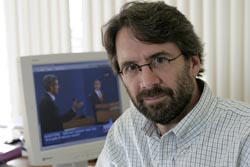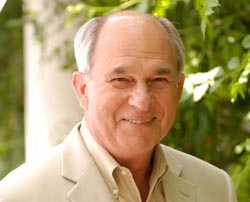The role of the Senate, Sen. Kennedy and the impact of his illness on the presidential campaign
|
For the first time in U.S. history, the presidential race will be a contest between two sitting U.S. senators. That fact, coupled with the news that Sen. Edward Kennedy is now dealing with a serious illness, is drawing attention to the role of the Senate and Kennedy’s influential career as Americans consider who should be the next president.
|
|
 Photo by Joseph V. Labolito/Temple University
Hagen
|
MICHAEL G. HAGEN, director of Temple's Institute for Public Affairs and associate professor of political science, says that this will be only the third time in history that the president will come directly from the Senate. “The careers of Sens. Clinton, McCain and Obama have in some way been intertwined with Edward Kennedy’s. After the events of the past two weeks, all three must be contemplating to varying degrees the possibility of leading the country, pursuing the vice presidency or returning to the Senate without Sen. Kennedy,” Hagen said. |
| “Kennedy has been a model lawmaker, one who has been able to stake out distinct positions while finding practical ways of working across party lines to deliver benefits on bread-and-butter issues,” he said. | |
|
JAMES W. HILTY, acting dean of Ambler College and professor of history, asserts that, in many respects, it was left to Edward Kennedy to implement and extend the legacies of his brothers. “Along the way, Sen. Kennedy has compiled an impressive record of legislative achievements. He deserves consideration as one of the finest lawmakers of his time(s) — he has served so long that he has literally lived through at least three, if not four political eras, finding a place of distinction in all of them,” Hilty said.
|
 Photo courtesy TU Ambler
Hilty
|
| of the opposing side's argument even if he could not find any way to support their proposal. This attitude has served him well and, I dare say, served our country well, too,” Hilty added. | |